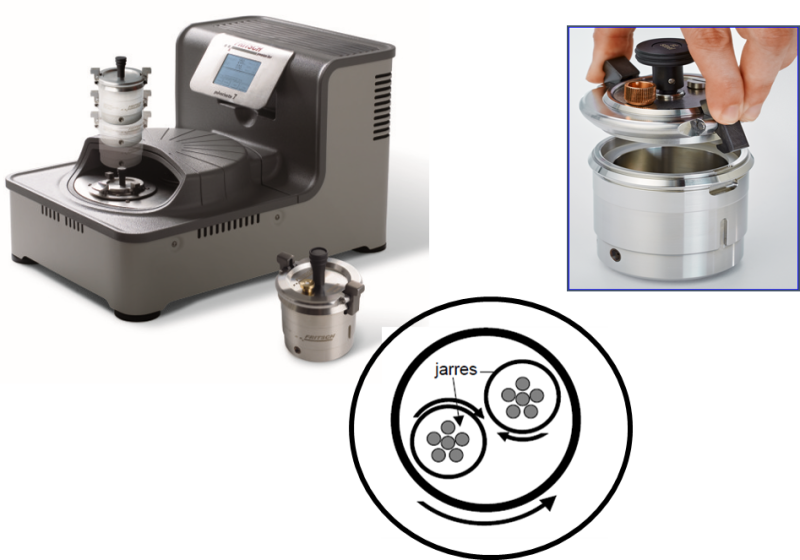LCC
Study published in RSC Mechanochemistry
One of the main challenges facing research into the synthesis of biologically active molecules, including medicines, is the development of more environmentally-friendly methods. Under the term ‘green chemistry’, issues of efficiency, waste management and energy consumption are addressed in this research.
Mechanochemistry, which enables a chemical reaction to be induced by the direct input of mechanical energy, provides a partial response to this challenge. In this context, chemists from the CNRS (Laboratoire de chimie de coordination (LCC – CNRS) and “Institut des sciences analytiques et de physico-chimie pour l’environnement et les matériaux” (IPREM – CNRS/Université de Pau Pays de l’Adour)) have revisited a very important reaction in medicinal chemistry: the Biginelli reaction.
These results, published in the journal RSC Mechanochemistry, open the way to new sustainable strategies for the synthesis of therapeutic molecules and other active compounds.
- Read the full post (in french) on the website of the CNRS Institute of Chemistry (INC) – Editor: Anne-Valerie RUZETTE

L’utilisation d’un équipement mécanochimique permet de verdir la synthèse de principes actifs et molécules thérapeutiques . © Michel Baltas
Reference
Unprecedented linear products by a mechanochemically activated Biginelli reaction using lawsone
Christina L. Koumpoura, Laure Vendier, Christian Bijani, Anne Robert, Philippe Carbonnière, Jean-Marc Sotiropoulos & Michel Baltas
RCS Mechanochemistry 2024
Further information
- Scientific contacts LCC:
– Michel Baltas
michel.baltas@lcc-toulouse.fr
- Contact for the press:
Evelyne Prévots
evelyne.prevots@lcc-toulouse.fr
LCC CNRS
Laboratoire de chimie de coordination du CNRS
205 route de Narbonne, BP 44099
31077 Toulouse cedex 4
France




